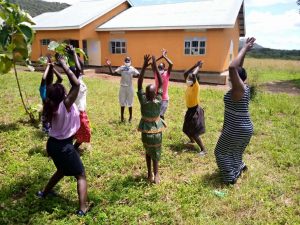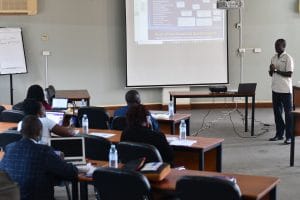
Various dignitaries proposed several strategies to bring an end to violence against children in a two-day national symposium on creating a safe and positive learning environment held in Kampala last week. Themed: ‘A collaboration in learning,’ the symposium was organized by the Ministry of Education. In her key note address, Lady Justice Margaret Mutonyi, the resident judge of Mukono High Court called on government to establish and maintain state-of-the-art rehabilitation centers.
“We need to have serious rehabilitation centres where children receive quality rehabilitation centres so that they do not grow up to become adult offenders,” Mutonyi said.
She added that there is need to establish children offenders should not be mixed with adults during incarceration as this further perpetuates violence against them. Furthermore, Mutonyi said that in cases where violence against a child has been reported, evidence of the victim is critical.

The symposium was also graced by Hon. Rosemary Seninde, the minister of state for primary education. She emphasized the role of making school feeding a shared role rather than parents leaving it to government alone.
“Who is responsible for feeding children at school? Let all stakeholders, including parents remember to play their part. It is a shared role,” Seninde emphasized.

In an effort to share evidence based practices for creating safe learning environments, an official from RTI International shared a unique approach to combatting and preventing violence of all forms in schools that they have developed. The approach, dubbed: ‘JOURNEYS’ applies awareness-building social technologies, such as guided reflection, and prototyping to allow individual and collective actions for social change to emerge naturally rather than conducting any form of direct training or “sensitization. Journeys was launched on June 27, 2017 by the First Lady and Minister of Education and Sports, Honorable Janet K. Museveni, and the US Ambassador to Uganda, Honorable Deborah R. Malac, during the national commemoration of the Day of the African Child. It has since been rolled out to 2,600 public primary schools in Uganda.
Furthermore, the Ministry of Education has developed a comprehensive National Strategic Plan on Violence Against Children in Schools, along with guidelines for Reporting, Tracking, Referral and Response of children affected by violence. The Ministry also issued circulars banning all forms of violence against children in schools and has included those issues in the teachers’ code of conduct.
“More can be done to help our children by strengthening the implementation of these policies and frameworks at all levels, and by ensuring that all partners including civil society and non-government organizations shift their focus and resources to scaling up the upgraded government model,” Dr. Doreen Mulenga, the UNICEF Representative in Uganda said.
Alex Kakooza, the Permanent Secretary of the Ministry of Education noted that the ministry commits to continue supporting the 2015-2020 Strategic Plan to end Violence against Children.

Why Ending VAC in schools is vital
Children spend more time in school than they do elsewhere outside their home. Like parents, therefore, the adults who manage these institutions have an obligation to provide a caring and safe environment for all learners. Violence against students is very common in Uganda, even though corporal punishment was banned in 1997, 93% of boys and 94% of girls in primary school reported having ever been a victim of physical violence from a school staff member.
Incidents of violence against children are reported almost every day. There is an urgent need to accelerate our progress in addressing the challenge of Violence Against Children. Prevention is critical, but it is equally important to ensure that perpetrators of Violence Against Children, be they teachers or others, are held to account for their crimes.
The symposium ended on a high on Friday 20th September with participants pledging to create safe learning environments for all children.






